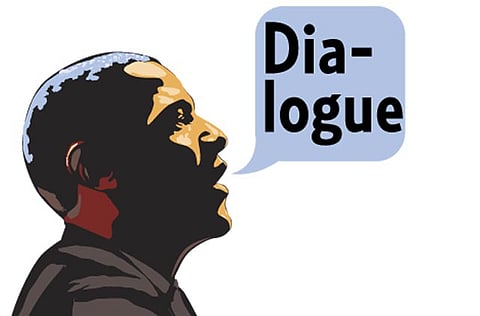Afghanistan is a lot like Albania
If Obama learns from Britain's mistakes, US can never win peace, honourably

Contrary to recent popular comparisons, Afghanistan is not Vietnam.
But it is a lot like Albania.
About 70 years ago, Albania — a small, mountainous country in the Balkans, was still populated by numerous "fanatical" warrior tribesmen. During the Second World War, Germany occupied this land. Given the strategic importance of the Balkans, the Allies, led by the British, sent in covert operatives to try to organise an indigenous Albanian resistance.
These Allied operatives were unable to think like tribal warriors and that is why they failed. If US President Barack Obama learns from Britain's mistakes and meets Afghan warriors on their terms, the United States can end the war and win the peace in Afghanistan, honourably.
Albanian tribal culture was, and still is, founded on kinship. Loyalty was rendered, first and foremost, to family and tribe.
Feuding culture
In 1943, the nation of Albania was scarcely 30 years old and tribesmen felt little or no loyalty to the state, which they believed was corrupt. On top of that, Albanian tribal culture was a feuding culture. Some tribes were friendly while others were sworn enemies.
This created an ever-shifting, almost incomprehensible network of tribal coalitions and factions, much akin to that in Afghanistan. As one Allied officer noted, "To spend hours trying to make an Albanian see the British point of view is a waste of time; the only possible method is to persuade him that some project desired by you is desirable from his point of view as well."
In the end, the Albanians were not persuaded. The costs were high: At least 14 Allied operatives and untold numbers of Albanians died and tons of equipment were lost. By 1945, the Germans had departed, leaving Albania in the hands of a ruthless Communist dictator, Enver Hoxha.
It doesn't have to end similarly in Afghanistan.
What was true for Albanian tribesmen in 1943 is true for Afghan tribesmen in 2010; they will act first in their own self-interest and that of their family and tribe. Their primary loyalty is not to a government or ideology. It appears that Obama and his military commanders understand that. But the lessons of the Allied failure in Albania go deeper.
Customary law
The first lesson: Traditional Albanians depend on a centuries-old system of customary law called the Code of Lekë, which is based on the concept of honour — ndera. The Afghan equivalent is nang. An Albanian warrior would rather die than dishonour himself and his family, and Afghan warriors are no different.
This made things very difficult for British operatives, who could not convince Albanians to act dishonorably to betray family or friends who worked for the Germans, for example and no amount of money or shame could sway them. Likewise, American soldiers must take seriously the Afghan customary law code, the Pashtunwali. In every joint action we take, in every negotiation, honour is at risk, and without honour an Afghan, just like an Albanian, is nothing.
The basis for a relationship with Afghanistan must be honour and honour is shared between individuals, man to man. Putting more troops on the ground, interacting with Afghans, is the only way to build such ties of honour.
The second major lesson to learn from Britain's mistakes: In Albanian culture, the guest is sacred. According to customary law, the greatest sin is to deny a visitor hospitality — mikpritja. The Afghan equivalent is melmastia.
British soldiers took great advantage of Albanian hospitality laws, but they were a double-edged sword. Once a man had been a guest in an Albanian home, the men of that home were honour-bound to protect him, even if he was a Nazi.
Afghans also consider guests to be sacred. Those who have rendered hospitality to Taliban fighters are unlikely to give them up. The US can hunt the Taliban, but it should not expect much help from traditional Afghans who have, in Albanian terms, "guest-friendships" with them.
Third and finally: In Albanian traditional culture the only way to cleanse dishonour is to take blood vengeance gjakmarrja or to reconcile based on "the mediation of good friends," to form a besa. The Afghan (Pashto) words for vengeance and reconciliation are badal and rogha. The British in Albania were bounced constantly between these two poles, vengeance and reconciliation. American soldiers in Afghanistan will be bounced between them as well.
Obama was right to open the door to reconciliation midway through his West Point speech last month. If the US is to have any hope of success in Afghanistan, the strategy on the ground must be to broker peace between individuals, families, and tribes. And most important, make peace with the relatives of those the US has inadvertently killed, who are otherwise honour-bound to seek vengeance.
Echoes of tribal culture persist in the high mountains of North Albania, but today the country is poised to join the European Union.
— Christian Science Monitor
Michael L. Galaty is a professor of anthropology at Millsaps College in Jackson, Mississippi. He spent eight years in northern Albania conducting research.



